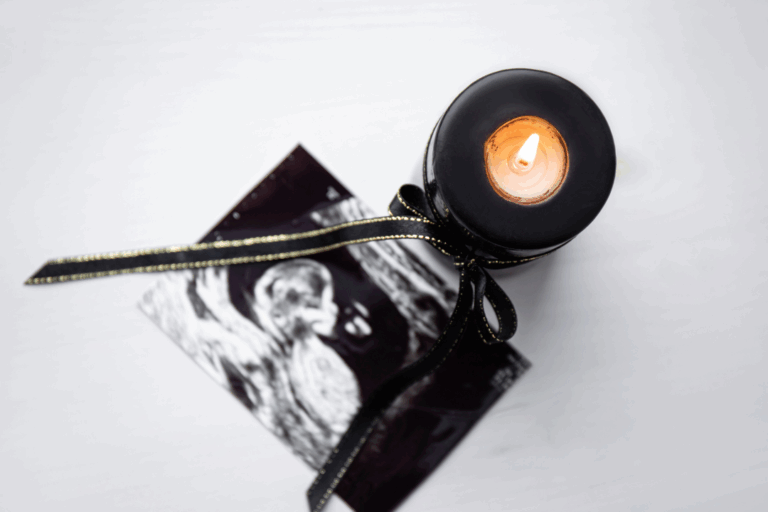How to get an overtired baby to sleep – this question has come up thousands of times in my private practice. As a mum of 3 and an Occupational Therapist specialising in fussy babies, I am going to share some practical strategies for how to calm your overtired baby. And how to avoid overtiredness in general.
I speak from personal experience when I say that there are very few moments more frustrating than trying to get your overtired baby to sleep. Tired cries build in intensity for what seems like forever. Anxiety sets in, as well as a growing sense of urgency. The really frustrating part is that the more tired your baby becomes, the more they will fight sleep.
When trying to settle your baby, and especially a newborn when they’re more prone to colic and overtiredness, think about your baby’s experience in the womb. Use that as a basis for calming their sensory system and settling them to sleep.
An overtired baby & cortisol
Helping your baby to sleep is easier when you understanding how neurochemicals in their brain functions. It can also prevent poor sleep habits from developing. The key hormones that govern sleep are melatonin and cortisol. The level of these hormones changes throughout the day according to normal sleep and awake times.
Cortisol is the hormone that keeps us awake and alert. Cortisol is highest when we wake in the morning and drops off throughout the day. Melatonin increases with the absence of light and prepares us to fall asleep. Why is this important to know? Because half your sleep battles will be won just by knowing how these neurochemicals work.
That means making sure your baby’s cortisol levels are lower when you want to settle them to sleep. At the same time, you want to encourage their brain to release melatonin ready for night time sleep. (This is why I’m a big fan of a consistent bath and bedtime routine!)
The primary reason an overtired baby won’t sleep is because of high levels of the stress hormone – cortisol. If your baby is overstimulated, their brain responds by releasing cortisol to keep them alert and awake. This is cortisol’s function so it makes sense that overtired babies get cranky when they need to sleep but their neurochemicals won’t let them!
How to avoid overtiredness in your baby
Now that we know why an overtired baby won’t go to sleep, how long do we have before babies start getting overtired? Newborns and little babies need regular sleep to process everything they learn throughout the day. These short ‘Awake times’ or awake windows increase in length with age. For instance, a newborn can only comfortably cope with 45 minutes of stimulation or ‘awake time’ before becoming tired. Whereas a six-month-old can cope with close to 2 hours of awake time and a toddler with between 4 and 5 hours of awake time.
When the awake time draws to a close, your baby starts to become drowsy. If you settle your baby at this time, they will fall asleep with ease. But if you keep your baby awake past their age-appropriate awake time, their brains will respond by releasing hormones to promote alertness, like adrenaline and cortisol as we’ve already discussed. These ‘stress’ hormones are why overtired babies (and toddlers) fight sleep. So what are the signs of overtiredness to look out for?
The stages of overtiredness in babies
Stage 1
When babies start to become overtired they will try to stay alert by rubbing their eyes or ears or turning their head away from stimulation.
Stage 2
If you don’t start to settle your baby now, they will start to use more overt self-soothing behaviours like sucking their thumb or looking for a dummy/pacifier. Don’t make the mistake of thinking that you have some time before uncontrollable crying starts. Try to settle your baby now before stage 3 of fatigue sets in.
Stage 3
Your baby is now overtired. They may start to show involuntary signals such as hiccups or sneezing. As well as blueness around the mouth in small babies, sweaty palms, or quick breaths.
Final stage of overtiredness
In newborns, overtiredness can present as colic or unexplained persistent crying. They might also arch their back and pull their legs up as if in pain. In older babies, they will typically cry, refuse a feed or get fussy. They may fight their sleep and seem impossible to please.
These are signs of fight or fight – the classic response to stress hormones. Following age-appropriate awake times is the best way to prevent overtiredness and settle your baby to sleep.
How to settle an overtired baby
An overtired newborn will need lots of soothing strategies to settle, particularly if they are already crying. In older babies, there are more techniques to try to prevent calm your baby. What’s most important it to try to remain calm and patient, overtiredness can be scary for new moms and dads but using these soothing strategies can make all the difference:
- Swaddle your baby – the sensation of deep pressure mimics the womb and is calming for your overtired baby
- Rocking & movement – your baby’s vestibular system is the sensory system that helps them to know where they are in space. Since your baby was lulled by movement in the womb, movement is a familiar way to soothe your baby. Rocking or using a carrier is a good way to get your baby into a drowsy state so you can settle them to sleep in their crib.
- Holding – the comforting, familiar touch of mom and dad, can help to settle your overtired newborn or baby. Try not to move them from arm to arm or shoulder to shoulder too much. Get comfortable and be consistent with rocking, patting their back or bum. A baby carrier is a wonderful way to hold your baby with consistent, still touch.
- Consider your baby’s sleep space – a bright room with lots of things to look at can be distressing to a baby who has already reached their sensory threshold. By ensuring that the room dark is very soothing when used together with these other strategies, and signals to your baby’s brain that it’s time to sleep.
- Play white noise – soft white noise is like gentle music to your overtired baby’s sense of sound. Use an app or ad free music platform to generate sleep-inducing white noise while you rock, feed or hold your baby to a state of drowsiness.
A sleep time routine to prevent overtiredness in your baby
As your baby grows out of the newborn stage and become more alert, it is easy to make the mistake of letting them stay awake when they’re happy and engaged. But remember that babies go from stimulated to overstimulated very quickly.
Use these tips as your go-to routine to settle your baby before they become overtired:
- Leave at least 15 minutes to calm your baby in their room before putting them down to sleep.
- If it’s bedtime, use an hour long bedtime routine to encourage drowsiness and signal to your baby that it’s time for sleep.
- Reading a book in dim lighting can help to settle your baby into a drowsy state.
- Use a rocking chair or a baby swing if your baby enjoys it. Be sure that your baby does the last part of falling asleep in their cot or bed to avoid the rock-to-sleep habit.
- While a feed before sleep can be comforting if its age appropriate, be sure to never let your older baby fall asleep on the breast or bottle as this is sure to form an unwanted feed-t0-sleep habit.
- Sing or hum a lullaby or play white noise to to your baby into a drowsy state.
To recap – whether you have a newborn, an older baby (or a toddler), overtiredness can be avoided by learning to read your baby’s signals and sticking to a regular sleep schedule based on awake times. Download the Parent Sense app for a suggested, flexible routine guided by your baby’s age and awake times. Once your baby is in an appropriate day sleep routine, you can look forward to better night sleep and a more restful family in general.




